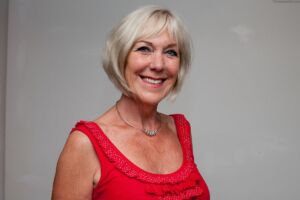Opinion
Crazier than Christmas | Oh happy Danes!
This article is more than 11 years old.

How happy are you on a scale of 1-10? I asked this as part of my stand-up comedy show ‘Killing the Danes’, which I performed in London this summer, and told audiences to base their decision on the same criteria used by the UN Happiness Report – factors like income, health benefits, lack of corruption, trust etc.
London’s limits
Hardly anyone amongst the London audiences returned a score as high as seven. I told them that Denmark has been labelled the happiest nation in the world every year since surveys began in 1976, and that, as members of the EU, they could hop on a plane tomorrow and join the happy Danes and share their happy lives. But I made this proposal with a gentle warning.
The Danes are happy. It’s true. When I asked the same question in the Copenhagen version of my show, there was a avalanche of 8, 9, and 10s from the Danes in the audience.

“Mmmmh, sausage caked in sand, how hyggeligt”
As cheery as Von Trier
But why are they so happy? After all, they make the most depressing prize-winning crime series (‘The Killing’, ‘The Bridge’) and angst-ridden films (‘Melancholia’, ‘Antichrist’) on the planet, and yet are not internationally recognised for any laugh-out-loud comedies.
They have high taxation, an alarming suicide rate and many Danes complain loudly about day-to-day things that other nations shrug off as normal or trivial. So why? Could it be because their expectations are lower than those of other nations?
Happy with their lot
The average Dane, with his efficient health service, reasonable salary, and (relatively) uncorrupt government is deliriously happy – not when he receives his monthly pay check, but when the sun comes out.
A Dane is thrilled to bits if he has a good wind behind him when he is cycling on those bitterly cold winter evenings when it gets dark at 3.30pm. A Dane is beaming on Friday afternoons sitting in traffic on the way to his summerhouse located a short distance from his home.
If you ask him what he does there, he looks nonplussed. He does nothing very much. Every weekend he drives from his small apartment in Copenhagen to his smaller and, often quite primitive, summer shack close to a beach. And, once there, he does the same as he did in the city. He cycles around, reads the paper and he grills.
Undisputed grillmeisters
Danes grill more than any other country in the world. Often he does not communicate with anyone but his closest family for the whole weekend. There are no outings to crowded pubs in the evening to meet and chat with other drinkers. No cricket or baseball matches to watch on the village green. No impromptu invitations to strangers to come and visit. A Dane is happiest when there are no surprises.
And maybe therein lies the key to his happiness. A sense of security and predictability. And, when I look at other nations and their fears for now and the future, who can knock that?
About










































